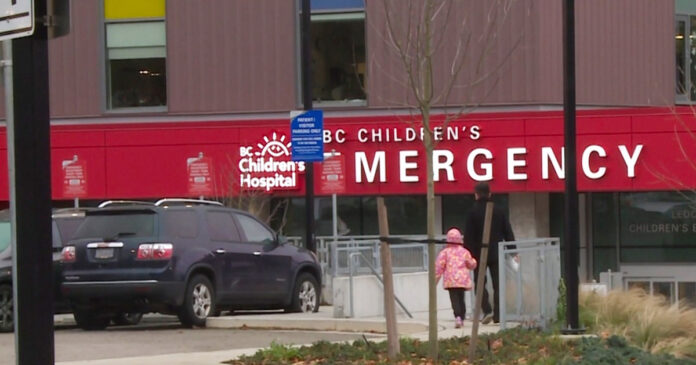Healthcare professionals are urging the British Columbia government to repeal or delay the implementation of Bill 36 over concerns that it undermines patient-doctor relationships and healthcare autonomy.
BC Conservative leader John Rustad and MLA Dr. Bruce Banman presented over 5,000 anti-Bill 36 postcards in the Legislative Assembly of British Columbia on Thursday signed by concerned citizens and addressed to elected officials.
These postcards collectively demand that elected representatives review Bill 36 and consider repealing or delaying its implementation.
This Health Professions and Occupations Act (HPOA), quietly passed in November 2022, has triggered widespread concern due to its potential to infringe on healthcare autonomy and undermine the quality of healthcare in British Columbia.
In response to these deeply rooted concerns, a coalition of healthcare professionals, led by BC Conservatives John Rustad MLA and Dr. Bruce Banman, initiated a public campaign and held a press conference outside of legislature.
A number of healthcare professionals, including physicians, nurses and chiropractors expressed their apprehensions and objections to Bill 36, which became law without substantial debate or discussion.
MC’ing the press conference was Dr. Banman, Conservative MLA for Abbotsford South and former chiropractor.
“It was rammed through, and closure was invoked. I think the largest bill that’s come across the floor of the legislature in 30-some-odd years deserves the dignity of being debated. And it was not,” lamented Banman.
Gail Davidson, a retired Canadian attorney and human rights advocate, explained that the Act was passed improperly using closure. She added that closure is a controversial time management tool to stop unnecessary debate — when the debate has gone on too long or is impairing the proper function of parliament.
Bill 36 was one of the largest bills ever passed in BC, consisting of 645 sections and 276 pages. Only 232 clauses were read, and Members of the BC legislature failed to fully consider or debate 412 clauses.
Despite being debated for 47 hours, almost nobody in the Legislative Assembly could have possibly understood any aspect of the Act, explained Davidson.
“This Act is dangerous to democracy; it’s dangerous to rights,” she said.
Davidson explained that the most concerning part of the Act is that it gives many different bodies the power to mandate compulsory vaccination for any transmissional disease.
Dr. Stephen Malthouse, one of many doctors who spoke at the press conference, warned that healthcare in the province was deteriorating at a very fast rate.
“It’s a snowball. But what we’re going to see with the acceptance of the passing of Bill 36 is that this snowball turns into an avalanche,” said Dr. Malthouse.
He added that many healthcare practitioners will be leaving the province or retiring early due to this bill.
“As a doctor, if we do not propagate the narrative of the government, the Ministry of Health, we will potentially be jailed for up to two years and given a fine of up to $500,000,” he said.
The press conference also brought attention to Bill 36’s implications for healthcare colleges. The legislation removes self-regulation from the current 15 healthcare colleges, placing them under the control of government appointees.
Colleges are not the only thing that the government would assume control over.
For Dr. Marina Sapozhnikov, the most concerning sections of the bill are 335 and 553, that indicate that the provincial health officer based on their opinion alone can introduce law in the province that has been made by any provincial, national, or international organization.
After growing up in Ukraine and spending 30 years in the Soviet Union, she was troubled by the bill’s implications.
“I could hardly imagine myself standing here in Canada and defending democracy. That is a sick joke,” said Dr. Sapozhnikov.
Following Dr. Sapozhnikov’s speech, Bruce Banman quickly took note of her comparison between the countries.
“I’ve just got to say that when someone from Russia who grew up in the USSR finds that it’s more draconian here than it is in the Soviet Union, that should make us all pause. It’s very, very scary,” he said.
Despite BC’s Minister of Health Adrian Dix saying in the legislature that this bill passed with “unprecedented consultation,” Dr. Anna Kindy shed light on the matter during the press conference.
She explained that in April 2023, there was a Zoom presentation to inform medical professionals about the HPOA. There were about 400 doctors on the Zoom call, with continuous questions about this Act. She said that two bureaucrats with no medical background went over the Act and failed to answer any questions.
“There was not one answer,” said Dr. Kindy.
However, following the Zoom call, the bureaucrats promised that they would eventually reach out with answers.
“No physicians got any answers. So, Minister Dix, we were not consulted,” she said.
Rustad pleaded with the BC government to support healthcare workers instead of sowing confusion..
“Adrian Dix has said they want to protect patients from the healthcare workers. To me, this is just wrong. We should be figuring out how we actually support and honor our healthcare workers. Our healthcare workers are the backbone of healthcare. Without them, we don’t have healthcare,” he said.
“This is a bill, quite frankly, that leads us further into darkness,” he said. The Conservative Party of BC recently called on the BC NDP to fire Dr. Bonnie Henry for banning thousands of healthcare workers from working in BC’s hospitals, clinics, and Doctor’s offices.





















